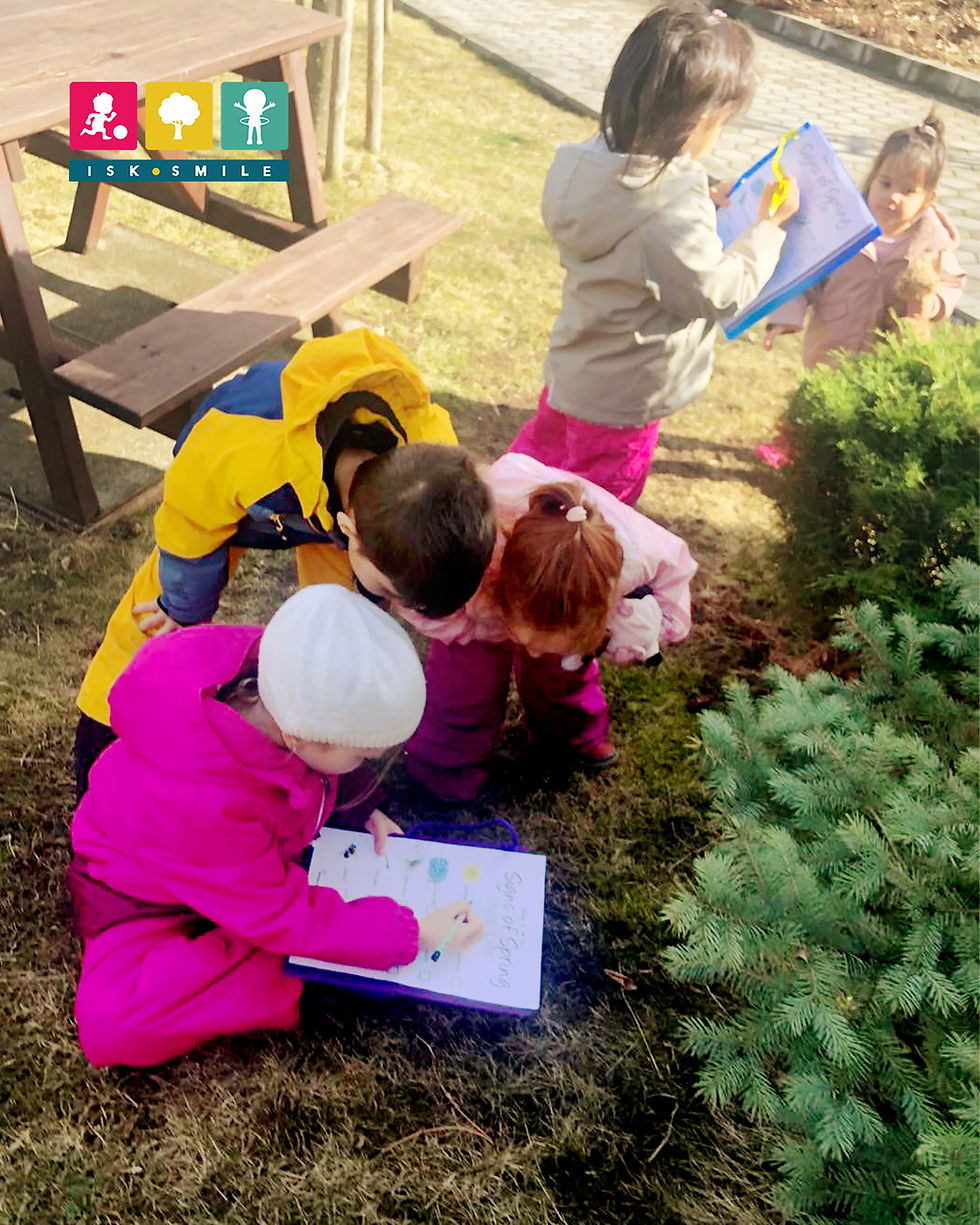Nurturing the Whole Child: Integrating Mind, Body, and Spirit in Early Learning
- Elina Cherkezova-Veleva
- Mar 8, 2024
- 3 min read

In the bustling world of early childhood education, the focus often leans heavily on academic milestones and cognitive development. While these aspects are undeniably crucial, there's a growing recognition that nurturing the whole child—mind, body, and spirit—lays the foundation for lifelong success and happiness. Holistic education for kindergarteners transcends the conventional boundaries of learning, aiming to foster emotional intelligence, creativity, and mindfulness. In this article, we will explore the concept of holistic education, emphasizing the importance of a balanced and comprehensive approach to early learning.
Holistic education is an approach that acknowledges the interconnectedness of different facets of a child's development. It goes beyond the traditional emphasis on academic achievement and recognizes that a child's mind, body, and spirit are inseparable elements of their being. By focusing on holistic education, we aim to nurture children who are not only academically proficient but also emotionally resilient, creatively inclined, mindful of themselves and the world around them, while also fostering essential social skills.
While academic skills are undeniably crucial, the development of emotional intelligence is equally vital for a child's overall well-being. Emotional intelligence involves understanding and managing one's own emotions, as well as recognizing and empathizing with the emotions of others. Incorporating activities that promote emotional intelligence in early learning environments is key to fostering healthy social and emotional development. An example of this is implementing activities that encourage children to express their emotions through art or storytelling. This provides a safe space for them to explore and communicate their feelings.
Creativity is often touted as a crucial skill for the 21st century, and its roots can be traced back to early childhood. A well-rounded curriculum should include activities that stimulate a child's imagination and creativity. Engaging in creative arts not only enhances artistic skills but also promotes problem-solving abilities, critical thinking, and innovation. Such activities include drawing, painting, or even simple crafting into the curriculum. Encouraging children to express themselves freely and appreciating the diversity of their creative expressions is essential for creating motivation for future creative development.
In the fast-paced world we live in, the ability to be present and mindful is a valuable skill. Mindfulness practices in early childhood education contribute to the development of self-regulation, attention control, and stress reduction. Teaching mindfulness to young children doesn't have to be complicated; simple exercises can have a profound impact on their overall well-being. Short mindfulness exercises can be guided breathing or sensory awareness activities, into the daily routine. These moments of quiet reflection can help children develop a sense of calm and focus.
A holistic approach to early learning also considers the physical well-being of the child. Gross motor skills, which involve the use of large muscles, play a crucial role in a child's physical development. Activities that promote physical fitness not only contribute to a child's health but also enhance their overall cognitive abilities.
Incorporating outdoor playtime and structured physical activities into the daily schedule not only supports the development of gross motor skills but also provides an opportunity for social interaction and exploration.
The holistic education of kindergarteners requires a collaborative effort between educators and parents. Open communication and shared goals can create an environment that supports the holistic development of the child. It's essential to recognize that each child is unique, and their development may follow different trajectories. A comprehensive approach involves adapting teaching strategies to cater to individual needs and preferences.
In the pursuit of nurturing the whole child—mind, body, and spirit—in early learning, it is crucial to embrace a holistic approach. Balancing academic skills with emotional intelligence, fostering creativity, promoting mindfulness, and supporting physical well-being collectively contribute to a child's comprehensive development. Educators and parents alike play a vital role in creating an environment that values and nurtures every aspect of a child's being. By adopting a holistic perspective, we can empower the youngest members of our society to not only succeed academically but also thrive emotionally, creatively, mindfully and socially.





Comments